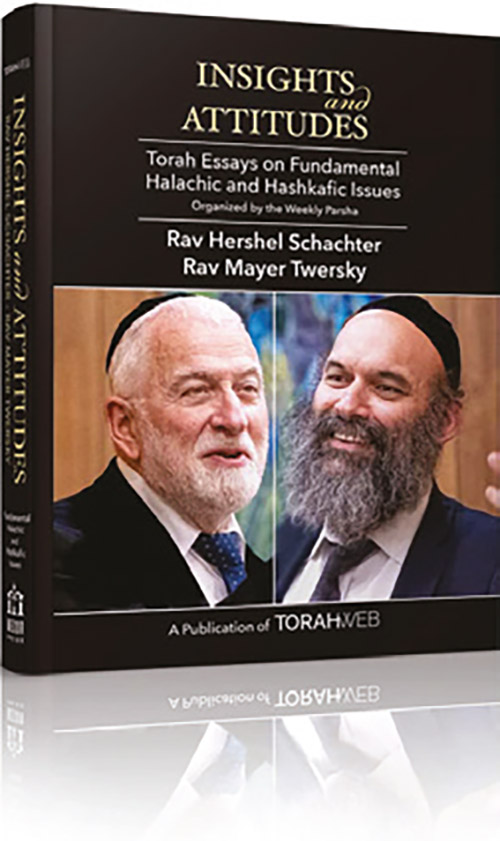
Editor’s note: This series is reprinted with permission from “Insights & Attitudes: Torah Essays on Fundamental Halachic and Hashkafic Issues,” a publication of TorahWeb.org. The book contains multiple articles, organized by parsha, by Rabbi Hershel Schachter and Rabbi Mayer Twersky.
“אם בחקתי תלכו ואת מצותי תשמרו ועשיתם אתםIf you walk in my statutes, and keep my commandments, and do them.” (Vayikra 26:3)
Based upon Toras Kohanim and Rashi, an interpretive translation of this verse reads as follows: “If you toil assiduously in studying My Torah in order to observe My commandments and actually fulfill them….” Understood in this vein, the pasuk is instructing us that the sine qua non (what is absolutely necessary) for Klal Yisrael’s religious life and observance is not only talmud Torah, but amala baTorah, toiling in Torah This vital point is well worth underscoring; simple talmud Torah does not suffice, intensive study is required. Such intensity, as Chazal comment elsewhere (Berachos 63b), involves self-sacrifice. “אין תורה מתקיימת אלא במי שממית עצמו עליה — Torah is preserved only by someone who sacrifices himself for it.”
The nexus between עמלה של תורה (toil in Torah) and shemiras hamitzvos should be understood on, at least, two different levels. On an intellectual level, facile, lackadaisical study virtually guarantees errors. A superficial grasp of halachic concepts or principles is often, to varying degrees, an incorrect grasp. It provides a basis for misguided applications and extrapolations. Truth is not simplistic and thus not casually acquired. And thus, to reiterate, facile, lackadaisical study virtually guarantees errors in understanding. And errors in understanding yield errors in observance.
Torah itself is so profound and holy that it defies measurement or description – “..ארוכה מארץ מדה.” Such is the reality of Torah. Our perception of Torah, however, is another matter entirely. To us, Torah is only as profound as we perceive it to be.
“כי לא דבר רק הוא. ואם רק – מכם הוא רק“Torah is not something hollow. And if it is hollow, the hollowness is on your account.” (see Rashi, Devarim 32:47)
If, Rachmana litzelan, we study Torah lazily and superficially, we perceive Torah to be flat and superficial. Instead of holiness, we experience hollowness which effectively discourages observance. When we be’ezras Hashem study Torah diligently and deeply, we gain a glimpse of its grandeur and profundity and are inspired to scrupulous and alacritous observance.
Rabbi Mayer E. Twersky is one of the roshei yeshiva at the Rabbi Isaac Elchanan Theological Seminary (RIETS) of Yeshiva University. He holds the Leib Merkin Distinguished Professorial Chair in Talmud and Jewish Philosophy. His popular lectures emphasize a combination of conceptual analyses and ethical imperatives. Twersky, a grandson of Rabbi Joseph B. Soloveitchik (“The Rav”), attended the Maimonides School, which was founded by the Rav. He then attended Harvard College, while studying Gemara privately with his grandfather. Following college, he studied for rabbinic ordination at RIETS. He first began working at Yeshiva University as a teacher in the Yeshiva University High School for Boys (MTA).










